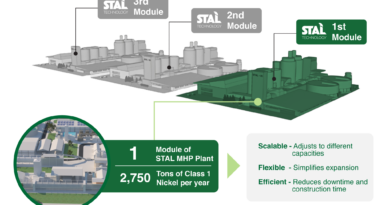Indonesia’s DHE Policy: Key Points You Need to Know and Understand
The Indonesian government has implemented a policy regarding foreign exchange export proceeds (DHE) from natural resources, which requires exporters to keep a portion of their earnings in the country.
Here’s a summary of the policy and its objectives:
Key Points of the DHE Policy:
- Mandatory Deposit: Exporters of natural resources like mining products (including coal, nickel, tin, copper, oil and gas, and liquified natural gas), plantation products (such as palm oil), forestry products, and fishery products, are required to deposit a certain percentage of their export earnings into the Indonesian financial system.
- Percentage and Duration:
- Initially, at least 30% of export proceeds had to be kept in the country.
- The deposit had to be maintained for a minimum of three months.
- The government is planning to extend the minimum retention period to one year.
- There has been discussion about increasing the required deposit to 50% or 60% and the retention period to six months.
- Eligible Exporters: This policy applies to exporters with export values of USD 250,000 or more per export customs notification. Exporters with lower values can participate voluntarily.
- Where to Deposit: Funds must be placed in a special DHE account at the Indonesian Export Financing Institution (LPEI) or any bank that conducts foreign currency activities approved by the Financial Services Authority (OJK). These funds can also be placed in banking instruments or instruments issued by LPEI or Bank Indonesia.
- Use of Funds: Exporters can use the funds in their DHE accounts for various purposes, including paying export duties and other levies, settling loans, importing goods, paying dividends, and for investment purposes. The 30% deposit must be maintained for at least three months before these funds can be used.
- Incentives: The government provides incentives for compliance, such as tax breaks on income from DHE deposits, preferential treatment in licensing processes for export/import, and other incentives for banks, LPEI, and exporters using Bank Indonesia instruments. A lower final income tax rate is applicable for interest derived from export proceeds placed in a time deposit in an Indonesian bank. The final income tax rate can range from 0% to 10%, where the normal final income tax for interest is 20%.
- Sanctions: Exporters who fail to comply with the DHE policy may face administrative sanctions such as suspension of export services.
Reasons for the DHE Policy:
- Stabilize the Rupiah: One of the main goals is to stabilize the Indonesian Rupiah by increasing the supply of foreign currency within the country.
- Increase Foreign Exchange Reserves: By requiring exporters to keep their earnings in the country, the government aims to boost the nation’s foreign exchange reserves. In December 2024, Indonesia’s foreign exchange reserves reached a record high of $155.7 billion, partly due to this policy.
- Support the domestic economy: The policy aims to strengthen the national economy and support domestic industries.
- Promote Downstream Processing: The policy supports Indonesia’s broader strategy to add value to its natural resources through domestic processing, rather than exporting raw materials. The government wants to ensure that raw minerals are processed domestically before being exported.
- Economic Resilience: The policy is intended to strengthen the Indonesian economy against global economic uncertainties. By having more foreign exchange reserves, the country is better positioned to handle global financial fluctuations.
- Encourage investment: The policy is intended to encourage more investment within the country.
- Fund Economic Development: The policy is also aimed at providing sources of financing for economic development.
In essence, the DHE policy is designed to ensure that more of the profits from Indonesia’s natural resources remain within the country, strengthening its economy and financial system.
It aims to achieve this by mandating that exporters keep a significant portion of their foreign currency earnings in Indonesian financial institutions for a specific period. This helps in stabilizing the currency, increasing reserves, and supporting domestic industries.
Top of Form
FAQ: Indonesian Regulations on Natural Resource Exports and Foreign Exchange
- What is DHE SDA and why is it important?
DHE SDA, or Devisa Hasil Ekspor dari Barang Ekspor Sumber Daya Alam, refers to the foreign exchange export proceeds from the business, management, and/or processing of natural resources in Indonesia. The Indonesian government has implemented regulations to mandate the placement and retention of DHE SDA within the domestic financial system. This policy aims to strengthen the national currency (Rupiah), increase the country’s foreign exchange reserves, encourage domestic investment and working capital, and support the growth of downstream industries by adding value to natural resources within Indonesia. These measures aim to achieve greater macroeconomic and financial stability for Indonesia.
- What are the key changes introduced by Government Regulation 36/2023 (GR 36)?
GR 36/2023 introduces several new requirements for natural resource exporters. A key aspect is that exporters must deposit a minimum of 30% of their DHE SDA into a special account within the Indonesian financial system. This account must be held for a minimum of three months. GR 36/2023 also outlines specific incentives for exporters and financial institutions who participate in this program, as well as sanctions for non-compliance. This regulation replaced Government Regulation No. 1 of 2019.
- What types of companies are affected by the DHE SDA regulations?
The regulations primarily affect companies exporting natural resources from the mining, plantation, forestry, and fishery sectors. Specifically, exporters whose DHE SDA is at least USD 250,000 (or its equivalent) are obligated to place a minimum of 30% of those proceeds into special accounts. Exporters with earnings below this threshold can voluntarily participate in the DHE SDA program. Exports not connected to business activities involving foreign exchange and lawful barter trades are excluded. The type of goods that are subject to this are listed in the Minister of Finance Decree 272/2023.
- What is the mandatory holding period for DHE SDA, and is it changing?
Currently, at least 30% of DHE SDA must remain in designated financial instruments for a minimum of three months. The Indonesian government is planning to extend this mandatory holding period, with discussions pointing to a minimum of one year, though some government sources have discussed six months. This extension is intended to further stabilize the Rupiah, but is creating some resistance from exporters. This is a key point of discussion and review at this time.
- What incentives are offered to encourage exporters to comply with DHE SDA regulations?
To encourage compliance with DHE SDA regulations, the government provides various incentives, including: Tax facilities on income earned from DHE SDA deposits; Exporters may be designated with “good reputation” status, streamlining export licensing processes; and Various government institutions can provide incentives to exporters who place DHE SDA into instruments issued by Bank Indonesia as well as the financial institutions managing these accounts. There are reduced tax rates on interest for DHE SDA when converted to rupiah and placed in instruments with certain retention periods, including a 0% rate if held for six months or more.
- Where can exporters place their DHE SDA?
Exporters can place their DHE SDA into specific DHE SDA accounts held at the Indonesian Export Financing Institution (LPEI) or any bank that conducts foreign currency activities approved by the OJK (Indonesia’s financial services authority). Funds can also be placed in various financial instruments, such as banking deposits, LPEI-issued debt instruments, and Bank Indonesia-issued instruments. There are some regulations regarding offshore escrow accounts that would need to be moved to Indonesia in certain circumstances and time periods.
- Can exporters use the funds in DHE SDA accounts, and for what purposes?
Yes, the funds in the DHE SDA accounts can be used by exporters for various purposes, while still satisfying the requirement to maintain a minimum of 30% for the duration of time required (currently 3 months, may be longer). These purposes include the payment of export duties and levies, loan payments, import expenses, dividend payouts, and other investment-related needs. Payments made through an escrow account must be made through an account at LPEI or an approved bank.
- How does the new regulatory changes effect the mining industry in Indonesia?
The new regulations for DHE SDA may impact the mining sector in a number of ways, including: Potential strain on company liquidity and cashflow due to requirements to hold large amounts of DHE SDA for extended periods, which may in turn reduce their ability to invest in new capital goods. Smaller companies may be impacted more because of reduced financial flexibility, and because some sectors, such as nickel, are dominated by larger players. State Owned Enterprises (SOEs) are asking for special consideration in this policy change. There has also been concern that extending the DHE SDA holding time may increase operational costs as companies potentially will have to take out more loans to cover their operating costs. The regulations also include changes to how mining licenses can be granted, including providing licenses for certain areas to religious organizations.

